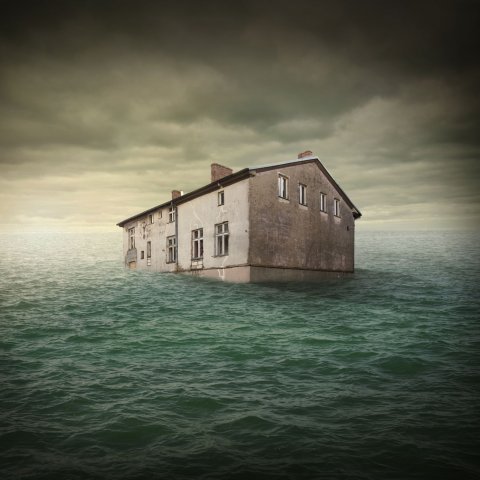After the Flood

Children love the Biblical story of Noah and the flood. Children’s books depict smiling animals marching two-by-two before the deluge, the ark bobbing on the roiled seas, and after the climax, a dove sent out to spy dry land, with the closing illustration wrapped neatly in a rainbow.
Imagine, however, if a contemporary journalist documented the real impact of a devastating flood of that magnitude. It would look far more like the tragic depiction of suffering and destruction that we have seen each day resulting from a relentless hurricane season; a 3-year-old clinging to the body of her drowned mother is not the stuff of children’s literature.
Natural disasters shock us into awareness of the fragility and tenuousness of our existence. They remind us, just as the liturgy of Rosh Hashanah reminds us, of how little is in our control and how vulnerable we are.
Those who escape physical harm are left to confront a post-apocalyptic landscape in their communities, and to relive the nightmare as broadcast on social media. When the flood waters subside, pundits shift their focus to sins of omission—what we might have done to build better storm walls, to reinforce infrastructure, to build where there is less likelihood of disaster. If only…
And we could do much better. Natural disasters do not discriminate in their capacity to rob people of their lives, their homes and irreplaceable possessions. Still, among the survivors are society’s most vulnerable members, whose capacity to marshal resources and bounce back from catastrophic loss is far weaker.
As Jewish educators, we ask ourselves and our students to reflect on the wisdom of our tradition, and what meaning it can bring to our understanding of what often seems incomprehensible. We look for signposts and signals that expand our capacity to cope individually, communally, and societally. We plumb the Jewish experience to help us find or create pathways to action that will perhaps contribute to healing and regaining some semblance of wholeness.
We pray that we will be awarded the strength and resources to reflect upon our individual and communal shortcomings, in order to redirect ourselves more productively and compassionately (teshuvah), to serve more selflessly and mindfully (tefillah), and to give generously to those in need (tzedakah).
Robert Sherman is CEO of The Jewish Education Project.
